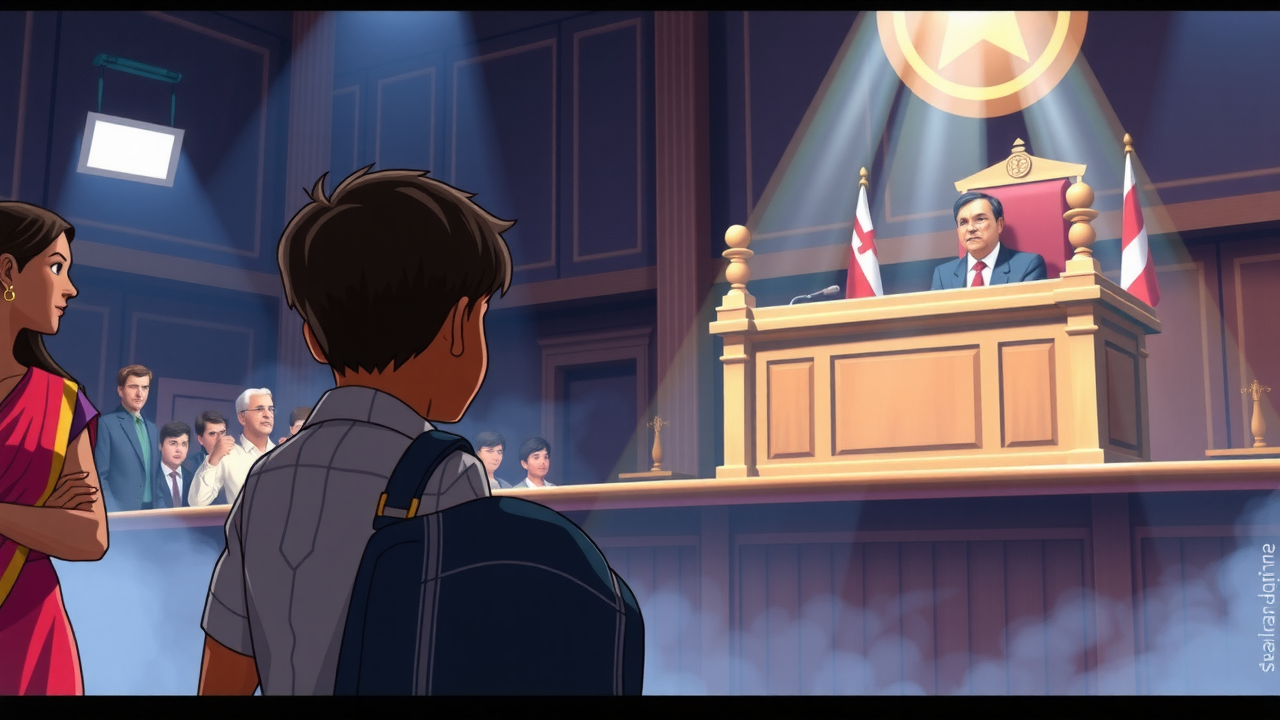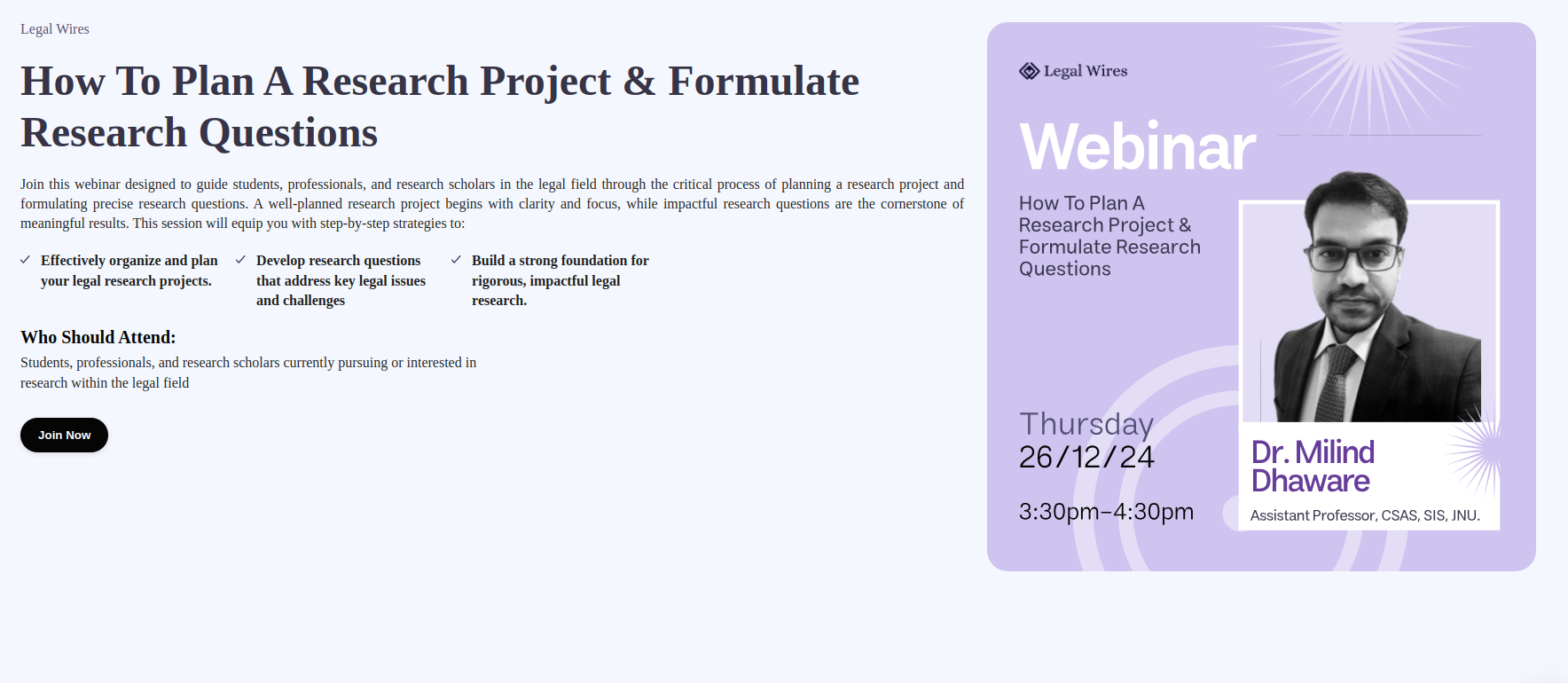Section 27 of the Bhartiya Nyaya Sanhita (BNS), 2023, provides legal protection for acts done in good faith for the benefit of minors below 12 years or individuals with mental incapacitation. It emphasizes the necessity of consent from a guardian or, where applicable, the individual themselves, prov

Introduction
- In India, a child is defined as a person below 18 years, as per the Indian Majority Act, 1875, aligning with the UNCRC.
- The capacity of a child to consent is crucial in various legal contexts. Under the Indian Penal Code (IPC), 1860, Section 375 states that any sexual activity with a girl below 18 is considered rape, regardless of consent, and the POCSO Act, 2012, prohibits child consent for sexual activities.
- The introduction of the Bhartiya Nyaya Sanhita (BNS), 2023 has redefined several sections to strengthen child protection laws.
- Notable changes include Section 69 (formerly IPC Section 87), which revises the age of valid consent for non-grievous harm, and Section 82 (formerly IPC Section 375), which upholds 18 as the age of consent for sexual acts. Section 84 (formerly IPC Section 90) clarifies that consent is invalid if a child cannot comprehend the consequences due to age. Sections 223 and 229, addressing abduction and kidnapping, have been reinforced to offer better child protection.
Meaning of a Child
- The Bhartiya Nyaya Sanhita (BNS), 2023 aimed at replacing the Indian Penal Code, 1860 maintains the principle that a child is a person below 18 years of age.
- Section 20 focuses on the criminal liability of children. It states that nothing is an offense which is done by a child below the age of 12, who has not attained sufficient maturity to understand the nature and consequences of the act. This section provides immunity to children from criminal prosecution in specific circumstances, similar to the provisions under Section 83 of the IPC.
- Section 21 deals with the principle of doli incapax, which means children under the age of 12 are presumed incapable of committing a crime due to lack of sufficient understanding. This section aims to provide clarity on the criminal liability of children and prevent their unnecessary involvement in the criminal justice system.
Understanding Consent: Navigating Section 27 BNS
Section 27 of BNS elucidates that an act perpetrated with benevolent intent, aiming to benefit:
- Minors beneath the age of 12, who lack the cognitive maturity to provide informed consent.
- Individuals beset by mental incapacitation, rendering them incapable of making astute decisions.
shall be exempt from criminal liability, provided that:
- The act is executed by, or with the explicit or implicit consent of, the guardian or person vested with lawful authority over the vulnerable individual.
- The person themselves provides consent, contingent upon their possession of sufficient intellectual maturity to render an informed decision.
- The act is not intended to precipitate mortal harm or grievous bodily injury.
- The act is not reasonably anticipated to result in mortal harm or grievous bodily injury to any individual.
This provision is designed to safeguard the well-being of vulnerable populations, including children and those afflicted with mental disabilities, by permitting actions that promote their welfare, contingent upon the presence of bona fide intentions and appropriate consent mechanisms.
Essentials of Section 27 BNS
1. Act Done in Good Faith
- Section 27 of the IPC provides legal protection for acts done in good faith for the benefit of a child under 12 years or a person of unsound mind. It requires that such actions be carried out with the appropriate consent and should not be intended to cause, nor likely to cause, death or grievous hurt. This section acknowledges the vulnerability of these individuals and offers legal immunity for actions taken with their welfare in mind, provided they meet specific conditions.
- In Ratanlal v. State of Madhya Pradesh[1], the Supreme Court clarified that acts done in good faith for the benefit of vulnerable individuals must be genuinely intended for their welfare and carried out with proper consent from a legal guardian. The Court emphasized that such actions should not be motivated by malice and must prioritize the protected individual’s well-being, aligning with the principles of Section 27 of the BNS.
2. Fundamental Aspects
- Good Faith Intention: The act must be performed with a genuine and honest belief that it is in the best interest of the child or person of unsound mind. The law emphasizes the importance of the actor’s intention being purely for the benefit of the protected individual.
- Benefit to Vulnerable Individuals: The primary purpose of the act should be to provide benefit or prevent harm to the vulnerable individual. This could include actions taken to ensure their safety, health, or well-being.
- Proper Consent: Consent is a crucial element under this section. If the individual is a child under 12 or a person of unsound mind, consent must be obtained from their legal guardian. If the individual is mature enough to understand the nature and consequences of the act, their own consent can be considered valid.
- No Intent to Harm: There should be no intention to cause harm. The act must not be aimed at causing death, grievous hurt, or any form of injury to the protected individual.
- No Likelihood of Harm: Beyond the absence of harmful intent, the act should also not be likely to result in death or grievous hurt. This means that even if the intention is good, the act itself must be safe and not pose a significant risk to the individual’s life or health.
- In Suresh Gupta v. Government of NCT of Delhi[2]the Supreme Court held that medical actions performed in good faith for a minor’s benefit, with appropriate guardian consent and no intent to harm, are legally protected. The judgment reinforced that such acts must prioritize the patient’s welfare, reflecting the essentials of Section 27 of the BNS.
3. Protected Individuals
- Children Under 12: The section specifically protects actions taken for the benefit of children below 12 years of age, recognizing their legal and cognitive incapacity to make informed decisions on their own.
- Persons of Unsound Mind: It also covers persons who are mentally incapacitated, acknowledging their inability to comprehend or manage their own well-being effectively.
4. Permitted Actions
- Acts Done with Guardian’s Consent: If the act benefits a child under 12 or a person of unsound mind, and is done with the consent of the legal guardian, it is protected under this section. This ensures that guardians can make decisions in the best interest of those under their care without fearing legal repercussions.
- Acts Done with the Person’s Consent (If Mature Enough): If the individual is capable of understanding the nature of the act and its consequences, their consent is sufficient. This clause takes into account the varying degrees of maturity and mental capacity of the protected individuals.
- Acts Benefiting the Vulnerable Individual: The section provides immunity for any act that is genuinely for the benefit of the child or person of unsound mind, as long as it meets the criteria of good faith, proper consent, and no intent or likelihood of harm.
Exceptions to Section 27 BNS
1. Intentional Harm
- Acts that intentionally cause death or attempt to cause death are not covered under the exemptions provided by Section 27. This principle was upheld in the case of Emperor v. Kazi Rehan Bux[3], where the court held that good faith cannot be a defense for intentional acts causing death.
2. Reckless Acts
- Any act likely to cause death is not exempted unless it is performed to:
- Prevent death or grievous hurt.
- Cure a grievous disease or infirmity.
- In R. v. Dudley and Stephens[4], although an English case, the court held that necessity cannot be a defense for an act that involves taking a life to save oneself, which parallels the principles under Section 27.
3. Grievous Hurt
- Voluntarily causing or attempting to cause grievous hurt is not exempted unless it is done:
- To prevent death or grievous hurt.
- To cure a grievous disease or infirmity.
- To prevent death or grievous hurt.
- The case of Kishori Lal v. Emperor[5],emphasized that causing grievous hurt under the guise of good faith without justifiable cause is not protected under law.
4. Abetment
- Abetting or encouraging any offense that falls outside the scope of Section 27 is not exempted. This includes assisting in actions that would not be considered in good faith or would not meet the conditions of the section.
- In R v. Richards[6], it was held that abetment of an act that cannot be justified under the law makes the abettor equally liable, a principle applicable to the interpretation of Section 27 exceptions.
Changes Under Bharatiya Nyaya Sanhita (BNS) 2023
| ASPECT | INDIAN PENAL CODE | BHARTIYA NYAYA SANHITA |
| Consent under fear or misconception | IPC Section 90: Deals with consent given under fear or misconception, including cases involving children. | BNS Section 28: Specifically addresses consent given under fear or misconception. |
| Good faith acts for the benefit of children or persons of unsound mind | Under Section 92 IPC, good faith acts for the benefit of children under 12 or persons of unsound mind are protected, provided they do not cause death or grievous hurt. | BNS Section 27: Focuses on acts done in good faith for the benefit of children or persons of unsound mind. |
| Capacity of children to give consent | IPC Sections 82 and 83: Address the capacity of children to give consent. | BNS Sections 20 and 21: These sections correspond to IPC Sections 82 and 83 but have been modified within the BNS framework for a cohesive approach. |
| Protection of vulnerable individuals | IPC Section 90: Offers protection by addressing consent in cases of fear, misconception, and involving children. | BNS Sections 27, 28, 20, and 21: Provide a more detailed and integrated approach to protecting vulnerable individuals, including children, in the context of consent. |
Conclusion
In accordance with Section 27 of the Bhartiya Nyaya Sanhita, 2023, the ostensible consent of a minor is unequivocally rendered nugatory, thereby precluding any putative legitimacy to sexual acts perpetrated upon them. This seminal legislation sagaciously recognizes the inherent vulnerability and nascent immaturity of children, thus shielding them from the insidious machinations of predators.
By deeming such acts as ipso facto criminal, the law efficaciously underscores the paramount importance of safeguarding the rights and well-being of children. This provision is a bulwark against the exploitation and abuse of minors, and its implementation is indispensable in creating a safe and protective environment for their development. Section 27 of the Bhartiya Nyaya Sanhita, 2023, is a landmark provision that trenchantly underscores the imperative of protecting children from sexual predation. Its sagacity lies in recognizing the power asymmetry between adults and children, and its efficacy in holding perpetrators accountable for their odious actions.
[1] AIR 1971 SC 778.
[2] (2004) 6 SCC 422.
[3] AIR 1941 Oudh 132.
[4] (1884) 14 QBD 273 DC.
[5] AIR 1945 Lah 23.
[6] (1974) 1 QB 776.



